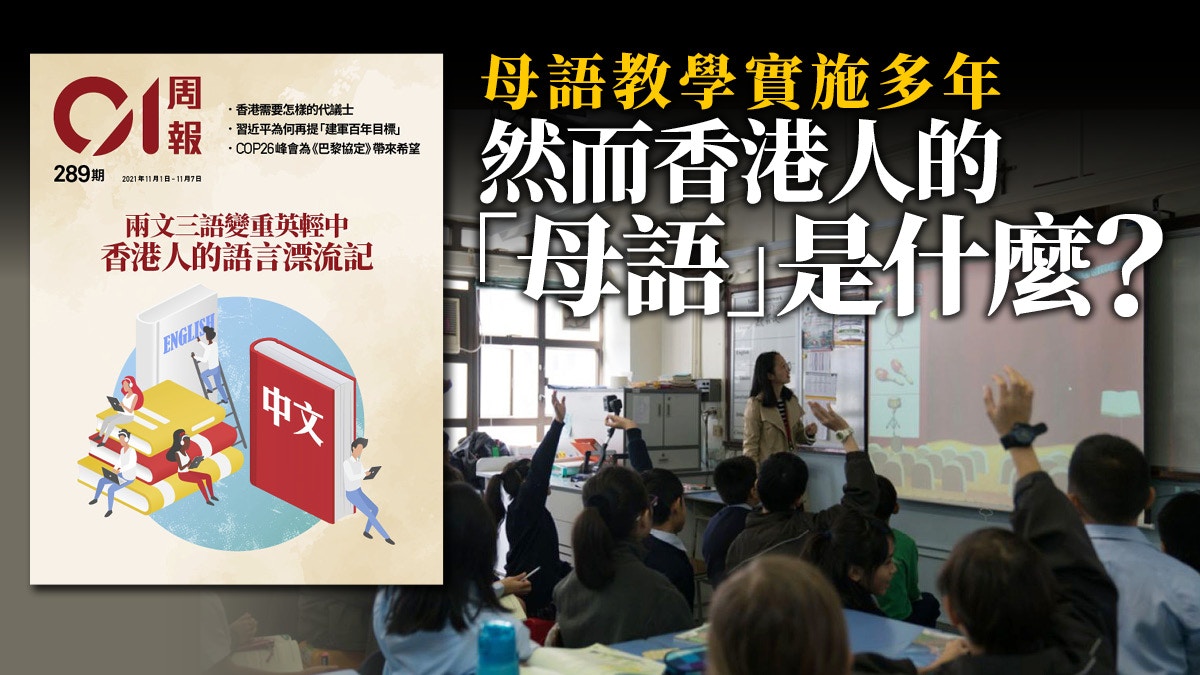Throughout the history of Hong Kong's development, the language policy of moving from "two literary" to "two literary and trilingual" has always been the main theme of social evolution.
During the colonial period, the British Hong Kong government deliberately or unintentionally "emphasized English and suppressed Chinese." In essence, it regarded Chinese and English as opposed to each other. Although the people had initiated social movements for the status of Chinese, it was difficult to change the "hegemony" of English as an elite language. .
After the reunification, Hong Kong moved from the original "two-literature" to the "two-literal and three-lingual" era, that is, writing in Chinese and English, and using Cantonese, Mandarin, and English as spoken languages.
To this day, the status of "English" is still clear, but the policy objectives of "Chinese" are still vague, and they are even involved in politicization time and time again.
In this way, the people of Hong Kong are drifting between the three languages, unable to say what the "mother tongue" is, nor can they know who the "foreign language" is. They only rely on political stances to find a foothold-but this should not be "two writings and three writings." The original intention of "language" should not be the effect that Hong Kong's language policy hopes to achieve.
"Hong Kong 01" has a dialogue with many experts including Emeritus Professor Zheng Yanxiang of The Education University of Hong Kong, Professor Shi Zhongmou of the Department of Chinese Languages of The Education University of Hong Kong, Assistant Professor Liang Huimin of the Department of Chinese and Bilingual Studies of the Hong Kong Polytechnic University, and Li Xiaoying, Director of the Hong Kong Federation of Education Workers. In the past and present of "biliteracy and trilingualism", rethinking what kind of language policy Hong Kong needs.
For detailed analysis, please read
the series of reports in
the 287th "Hong Kong 01" Electronic Weekly
:
The language drift of Hong Kong people-"Bilingualism and Trilingualism" has become "Emphasis on English rather than Chinese"
The history of colonialism opens the "English wave"
The myth of "internationalization" constitutes "English supremacy"
Blind "elitism" contributes to "English fever"
Cannot avoid politics "mother tongue teaching" is a false proposition
Unclear purpose, education reform, but Chinese policy is ambiguous
How should the SAR government amend the "biliterate and trilingual" policy?
Comparing the funding for Chinese education and Mandarin teaching, the support for English education accounts for the largest proportion.
(Photo by Zhong Weide)
Three highlights of the Legislative Council nomination period to present a new look at the election
The first Legislative Council election after the restructuring of the election, the nomination period began last Saturday (October 30), and 15 people signed up for the election on the first day.
There are three things to watch in this election: one is that old people are retiring, new people are emerging, and a large number of political parties are participating in the second and third echelon; Parliament is expected to improve the level of political discussion in the Legislative Council. Third, the competition within the establishment is fierce. To successfully enter the bureau, in addition to showing patriotism and loyalty, it is also necessary to demonstrate personal ability.
Please
click here to
read the full text.
The DAB announced the final list of 18 candidates. All 10 direct elections of geographical constituencies sent people to participate in the election, and four people from the functional constituency and the electoral committee sector were elected.
(Photo by Ou Jiale)
0.02% of Hong Kong's population-a tragedy for the homeless
Hong Kong has always had no statistics on the homeless. Fortunately, this year's tertiary institutions and service organizations have conducted surveys and statistics, so that the public has a deeper understanding of the 0.02% population.
It is hoped that the government can assist this group based on the information it has, and no longer leave them without protection.
Movies can be used not only as a form of entertainment, but also as a carrier of social culture.
The Hong Kong film "Muddy Waters Drifting" was shortlisted for the best feature film, best director and other 12 awards at the 58th Golden Horse Awards. "Jury Honor Award" and "Audience Choice Honor Award."
The success of the film is that besides relying on superior shooting techniques, the content is also worthy of attention.
Please
click here to
read the full text.
There are 1,532 homeless people in Hong Kong.
(Photo by Li Suntong)
The U.S. military stationed in Taiwan has made Jian Tsai Ing-wen boldly play big talk beer
In an interview broadcast by CNN last Thursday (October 28), Tsai Ing-wen confirmed extensive cooperation with the United States to enhance Taiwan’s defense capabilities; as to how many US military personnel there are in Taiwan, she did not To reveal the details, only to say "not as much as everyone thought."
CNN stated that Tsai Ing-wen became the first president in Taiwan in decades to admit that the US military is still engaged in training missions in Taiwan.
As president, Tsai Ing-wen confessed through the US media that the US military stationed in Taiwan for training. Following the theory of "the two countries are not affiliated with each other" in his Double 10th speech, he once again brought political turmoil to the Taiwan Strait.
Chinese Foreign Ministry spokesman Wang Wenbin criticized "people who tried to split the country did not end well."
Please
click here to
read the full text.
On October 26, Tsai Ing-wen was interviewed by CNN; on October 28, the content of the interview was broadcast. Tsai Ing-wen said that despite the increasing threats from the Beijing authorities, she is still willing to have a dialogue with Xi Jinping.
(Photo courtesy of the Presidential Palace of Taiwan)
Please pay attention to the 289th "Hong Kong 01" weekly electronic report published on November 1, 2021. You can also
click here to
sample the weekly e-newsletter and read more in-depth reports.









